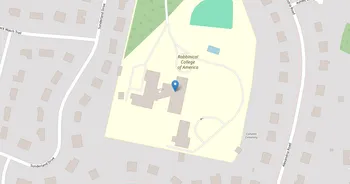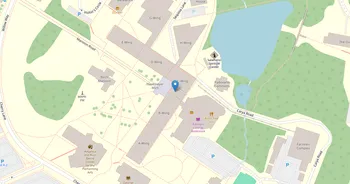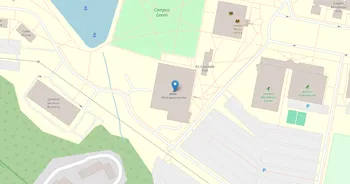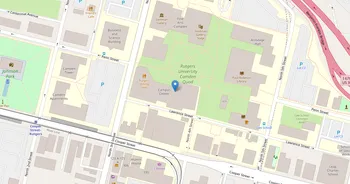Princeton University : Overview, Courses, Scholarships & Rankings
About Princeton University
On ivy-draped quads and light-filled labs, Princeton is known for rigorous teaching across the humanities, social sciences, natural sciences, and engineering. Small classes, close faculty mentorship, and abundant research opportunities shape the academic day, backed by deep libraries, studios and maker spaces, and residential-college support that includes advising, tutoring, and health and wellness resources.
Student life hums with a cappella under the arches, service groups, publications, and club and intramural sports. The eating clubs are a distinctive social-dining scene, while performance venues, galleries, and the rec center keep evenings busy. And the culture feels thoughtful, collaborative, a little tradition-loving. Career services and a far-reaching alumni network help students land internships and next steps. The town offers coffee shops, bookstores, a lively arts scene, and easy rail links. Longtime traditions, from orange-and-black reunions to lawn gatherings, add color. Notable alumni include Michelle Obama and Sonia Sotomayor.
Key Institutional Details
Contact & Profile
Academic & Institutional
Academic Programs & Fields of Study
Princeton University offers 47 degree programs across 16 major academic fields, graduating approximately 2,382 students annually. The most popular fields by graduate volume are Engineering (5 programs, 458 graduates), Social Sciences (5 programs, 353 graduates), Computer & IT (1 programs, 300 graduates), Public Services (1 programs, 227 graduates) and Physical Sciences (5 programs, 221 graduates). Explore program details, award levels, and graduate demographics below.
Engineering (5 programs, 458 graduates)
Engineering Sciences and Applied Technology Solutions
| Program Name | Graduates | Gender Distribution | Award Levels | CIP Code |
|---|---|---|---|---|
| Electrical and Electronics Engineering | 128 |
|
Bachelor's
Master's
Doctorate (R)
|
14.1001 |
| Operations Research | 105 |
|
Bachelor's
Master's
Doctorate (R)
|
14.3701 |
| Mechanical Engineering | 94 |
|
Bachelor's
Master's
Doctorate (R)
|
14.1901 |
| Chemical Engineering | 69 |
|
Bachelor's
Master's
Doctorate (R)
|
14.0701 |
| Civil Engineering | 62 |
|
Bachelor's
Master's
Doctorate (R)
|
14.0801 |
Social Sciences (5 programs, 353 graduates)
Sociology, Anthropology and Political Science Studies
| Program Name | Graduates | Gender Distribution | Award Levels | CIP Code |
|---|---|---|---|---|
| Econometrics and Quantitative Economics | 164 |
|
Bachelor's
Master's
Doctorate (R)
|
45.0603 |
| Political Science and Government | 95 |
|
Bachelor's
Master's
Doctorate (R)
|
45.1001 |
| Anthropology | 45 |
|
Bachelor's
Master's
Doctorate (R)
|
45.0201 |
| Sociology | 45 |
|
Bachelor's
Master's
Doctorate (R)
|
45.1101 |
| Demography and Population Studies | 4 |
|
Master's
Doctorate (R)
|
45.0501 |
Computer & IT (1 programs, 300 graduates)
Computer Science, Information Technology and Cybersecurity
| Program Name | Graduates | Gender Distribution | Award Levels | CIP Code |
|---|---|---|---|---|
| Computer Science | 300 |
|
Bachelor's
Master's
Doctorate (R)
|
11.0701 |
Public Services (1 programs, 227 graduates)
Public Administration, Social Work and Community Services
| Program Name | Graduates | Gender Distribution | Award Levels | CIP Code |
|---|---|---|---|---|
| Public Policy Analysis | 227 |
|
Bachelor's
Master's
Doctorate (R)
|
44.0501 |
Physical Sciences (5 programs, 221 graduates)
Chemistry, Physics and Earth Sciences Research
| Program Name | Graduates | Gender Distribution | Award Levels | CIP Code |
|---|---|---|---|---|
| Chemistry | 100 |
|
Bachelor's
Master's
Doctorate (R)
|
40.0501 |
| Physics | 64 |
|
Bachelor's
Master's
Doctorate (R)
|
40.0801 |
| Astrophysics | 34 |
|
Bachelor's
Master's
Doctorate (R)
|
40.0202 |
| Geology and Earth Science | 19 |
|
Bachelor's
Master's
Doctorate (R)
|
40.0601 |
| Atmospheric Sciences and Meteorology | 4 |
|
Master's
|
40.0401 |
Biological Sciences (5 programs, 220 graduates)
Life Sciences, Biotechnology and Biomedical Research
| Program Name | Graduates | Gender Distribution | Award Levels | CIP Code |
|---|---|---|---|---|
| Molecular Biology | 94 |
|
Bachelor's
Master's
Doctorate (R)
|
26.0204 |
| Neuroscience | 61 |
|
Bachelor's
Master's
Doctorate (R)
|
26.1501 |
| Ecology and Evolutionary Biology | 50 |
|
Bachelor's
Master's
Doctorate (R)
|
26.1310 |
| Computational Biology | 14 |
|
Master's
Doctorate (R)
|
26.1104 |
| Biophysics | 1 |
|
Master's
|
26.0203 |
Languages (7 programs, 96 graduates)
Foreign Languages, Literature and Linguistic Studies
| Program Name | Graduates | Gender Distribution | Award Levels | CIP Code |
|---|---|---|---|---|
| Comparative Literature | 24 |
|
Bachelor's
Master's
Doctorate (R)
|
16.0104 |
| Hispanic and Latin American Languages and Literatures | 24 |
|
Bachelor's
Master's
Doctorate (R)
|
16.0908 |
| Classics and Classical Languages | 14 |
|
Bachelor's
Doctorate (R)
|
16.1200 |
| German Language and Literature | 10 |
|
Bachelor's
Master's
Doctorate (R)
|
16.0501 |
| Slavic, Baltic, and Albanian Languages and Linguistics | 9 |
|
Bachelor's
Master's
Doctorate (R)
|
16.0400 |
| French Language and Literature | 8 |
|
Bachelor's
Master's
Doctorate (R)
|
16.0901 |
| Linguistics | 7 |
|
Bachelor's
|
16.0102 |
History (2 programs, 96 graduates)
Historical Studies, Cultural Heritage and Archaeological Research
| Program Name | Graduates | Gender Distribution | Award Levels | CIP Code |
|---|---|---|---|---|
| History | 88 |
|
Bachelor's
Master's
Doctorate (R)
|
54.0101 |
| History and Philosophy of Science and Technology | 8 |
|
Master's
Doctorate (R)
|
54.0104 |
Mathematics (3 programs, 85 graduates)
Mathematical Sciences, Statistics and Computational Analysis
| Program Name | Graduates | Gender Distribution | Award Levels | CIP Code |
|---|---|---|---|---|
| Mathematics | 50 |
|
Bachelor's
Master's
Doctorate (R)
|
27.0101 |
| Financial Mathematics | 25 |
|
Master's
|
27.0305 |
| Applied Mathematics | 10 |
|
Master's
Doctorate (R)
|
27.0301 |
Architecture (2 programs, 59 graduates)
Architectural Design and Construction Planning Services
| Program Name | Graduates | Gender Distribution | Award Levels | CIP Code |
|---|---|---|---|---|
| Architecture | 34 |
|
Bachelor's
Master's
Doctorate (R)
|
04.0201 |
| Architectural and Building Sciences | 25 |
|
Master's
|
04.0902 |
Admission Requirements & Test Scores
Comprehensive overview of admission criteria, standardized test score ranges, and application requirements for prospective students at Princeton University.
Application Requirements
Data based on IPEDS for 2022-2023 academic year. Test score ranges represent the middle 50% of admitted students (25th-75th percentile). Requirements may vary by program.
Tuition, Fees & Estimated Costs
Overview of tuition rates, housing, and other annual education expenses for undergraduate and graduate students
Financial Aid & Student Support
Summary of scholarships, grants, student loans, and financial aid statistics for undergraduate students
Student Success Metrics
Graduation rates and post-graduation earnings to help assess student outcomes and long-term value of education.
Loan Burden & Repayment Outcomes
Breakdown of loan repayment rates and student debt levels by income and dependency status.
Frequently Asked Questions
Find answers to the most common questions about Princeton University
How much does it cost to attend Princeton University?
The annual tuition at Princeton University is $59,710 for in-state students. When including room and board, books, and other expenses, the total estimated cost is approximately $84,040 for in-state students. Additional costs include room and board $19,380 (on-campus) and books and supplies $1,050.
Data based on IPEDS program completions for 2022-2023 academic year. Tuition and cost estimates are approximate and may not include all fees, personal expenses, or transportation costs.
What academic programs and degree levels does Princeton University offer?
Princeton University offers 47 academic programs across 16 major fields of study, with available degree levels: Bachelor's, Master's, Doctorate (Research), Other Award.
Most popular program areas include:
- Engineering Sciences and Applied Technology Solutions (5 programs)
- Sociology, Anthropology and Political Science Studies (5 programs)
- Computer Science, Information Technology and Cybersecurity (1 programs)
- Public Administration, Social Work and Community Services (1 programs)
- Chemistry, Physics and Earth Sciences Research (5 programs)
Data based on IPEDS program completions for 2023-2024 academic year. Numbers reflect programs where students graduated, not all offered programs.
What is the acceptance rate for Princeton University?
Princeton University has an 4.5% acceptance rate and a 76.7% yield rate, making it highly selective.
Admission statistics breakdown:
- Total applicants: 39,644
- Students admitted: 1,782
- Students enrolled: 1,366
Data based on IPEDS for 2022-2023 academic year. Admission statistics may vary by program and application cycle.
What financial aid and scholarships are available at Princeton University?
Princeton University provides financial aid to 27% of first-time, full-time students, with average grants of $60,629 and average loans of $7,667.
Average financial aid amounts by type:
- Pell grants: $5,866
- State/Local grants: $10,475
- Institutional grants: $57,898
- Federal loans: $4,751
The university supports 904 students with grants and 116 students with loans annually.
Data based on IPEDS for 2022-2023 academic year. Financial aid amounts and percentages may vary by program, enrollment status, and individual circumstances.
What is the average salary for Princeton University graduates?
Princeton University graduates earn a median salary of $87,815 after 6 years and $110,066 after 10 years.
The salary range 10 years after graduation spans from $68,313 (25th percentile) to $197,494 (75th percentile), with top earners reaching $217,200 (90th percentile).
Data based on IPEDS for 2022-2023 academic year. Salary data reflects graduates who received federal financial aid (approximately 60% of all graduates). Actual earnings may vary significantly based on program, location, and individual circumstances.
Related Universities




Found something useful? Help others discover it too! Share with friends, on social media, or save for later - every share helps someone find the information they need.